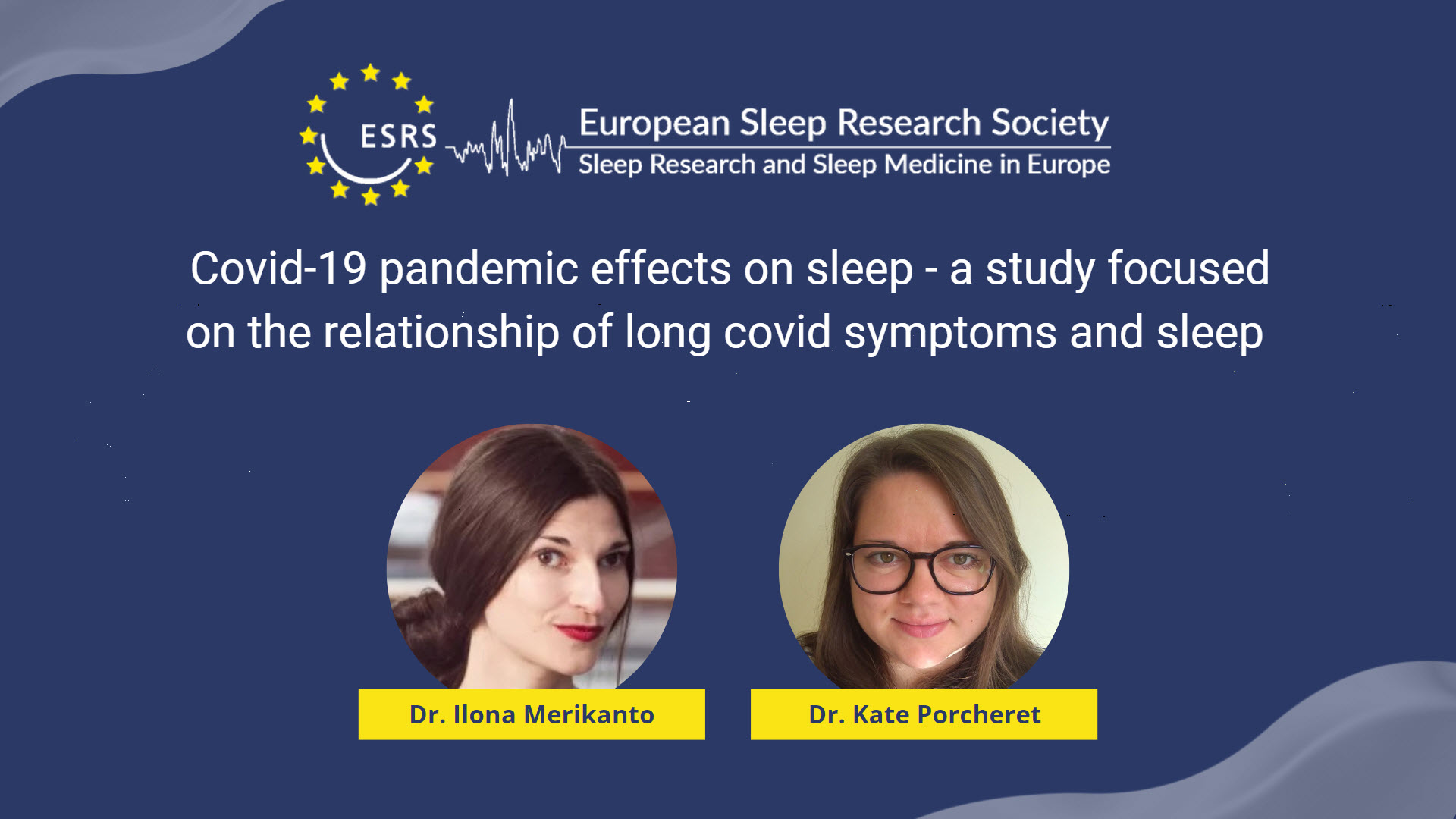COVID-19 pandemic effects on sleep – A study focused on the relationship of long COVID symptoms and sleep

Dr. Ilona Merikanto
Researcher and Docent in public health care science at the University of Helsinki, Faculty of Medicine, and a visiting researcher at the Finnish Institute of Health and Welfare, Finland.
Dr. Ilona Merikanto, a researcher at the University of Helsinki, has been conducting research on sleep and circadian rhythms, from childhood to adulthood. She also studies the relationship between the different chronotypes and health risks. Merikanto’s research underscores the importance of healthy sleep habits in accordance with their innate circadian tendency, especially for young people, to positively impact their life choices, well-being, and health prospects.
More recently, Merikanto also co-authored a paper (as lead author) on the relationship between sleep and long COVID-19 symptoms, entitled “Sleep symptoms are essential features of long‐COVID – Comparing healthy controls with COVID‐19 cases of different severity in the international COVID sleep study (ICOSS‐II)”. The International COVID Sleep Study (ICOSS) collaboration project across 18 countries, led by the University of Helsinki, was set up to examine pandemic effects on sleep (vide ICOSS projects). Dr. Kate Porcheret from the ESRS’ Digital & Communications Committee sat with Dr. Ilona to discuss their work further.
This paper, which resulted from the analysis of the data gathered from an online survey across 16 different countries from 4 continents, was published in the ESRS’ Journal of Sleep Research (vide Merikanto et al., 2023). It explores the potential impact of long COVID-19 on sleep, as well as the possibility that sleep disturbances may contribute to the persistence of long COVID symptoms. Dr. Merikanto´s research found that not only fatigue, but sleep symptoms such as daytime sleepiness, difficulty falling asleep or staying asleep (insomnia symptoms) were among the most common long-lasting symptoms experienced by those with severe cases of COVID-19. Long COVID symptoms were more prevalent among more severily infected cases requiring hospital treatment. The paper suggests that further research is needed to better understand this relationship, and to develop interventions to improve sleep and reduce long-lasting COVID symptoms. Previously, Dr. Merikanto’s research has shown that evening types seem to have more negative impacts from the pandemic due to their already existing sleep issues and mental health symptoms. This previous paper, focusing on pandemic effects on sleep and mental health among different circadian types was published in Sleep (vide Merikanto et al., 2022).
For even further insights on the results of Merikanto and ICOSS study, watch the entire interview below. You can also access the publication here.
Recent publications from ESRS members
- Hirtz et al. (2023). Comparison of ultrasensitive and mass spectrometry quantification of blood-based amyloid biomarkers for Alzheimer’s disease diagnosis in a memory clinic cohort. Alzheimers Res Ther.
- Chu et al. (2023). Total sleep deprivation increases brain age prediction reversibly
in multi-site samples of young healthy adults. J Neurosci. - Pires et al. (2023). Consumer sleep technology for the screening of obstructive sleep apnea and snoring: current status and a protocol for a systematic review and meta-analysis of diagnostic test accuracy. J Sleep Res.
- Harding et al. (2023). Detection of neuronal OFF periods as low amplitude neural activity segments. BMC Neurosci.
- Gnarra et al. (2023). REM Sleep Behaviour Disorder, a narrative review from a technological perspective. Sleep.
- Guerreiro et al. (2023). Impact of Acute Respiratory Failure on S3-NIV Scores in Patients Treated With Home Noninvasive Ventilation. Respir Care.
- Villemonteix et al. (2023). Sleep-dependent structural neuroplasticity after a spatial navigation task: A diffusion imaging study. J Neurosci Res.
- Palagini et al. (2023). Current models of insomnia disorder: a theoretical review on the potential role of the orexinergic pathway with implications for insomnia treatment. J Sleep Res.
- Pépin et al. (2023). Prevalence of sleep apnea in patients with type 1 diabetes and its association with comorbidities and diabetic complications: a French nationwide prospective study. Diabetes Obes Metab.
- Sutherland et al. (2023). Facial and Intraoral Photographic Traits Related to Sleep Apnea in a Clinical Sample with Genetic Ancestry Analysis. Ann Am Thorac Soc.



